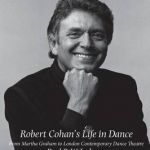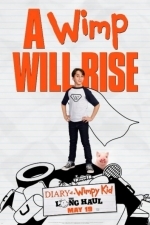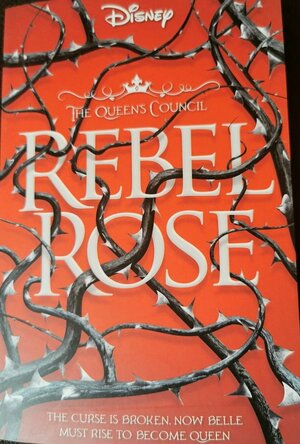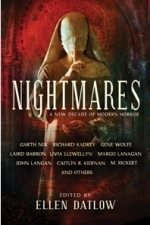Gareth von Kallenbach (980 KP) rated Diary Of A Wimpy Kid: The Long Haul (2017) in Movies
Jul 11, 2019
Headed cross country to their MeeMaw’s 90th birthday, it’s a 4-day haul to Indiana, and Mom has banned all electronic devices.
At least from an adult perspective, I can understand the premise, seeing as the kids are always up to their ears in iPads and Minecraft these days, and having a “conversation” can be like pulling teeth. However, again from an adult perspective, this movie might have been better if the characters HAD been up to their ears in iPads and Minecraft for the trip.
There was lots of bathroom humor, which did seem to pull some laughs from my 8-year-old son, although maybe not as many as might have been expected (some of it, thankfully, was still over his head), but just had me shaking my head and wondering what has happened to good clean humor?
Greg’s main goal throughout the Long Haul is trying to erase or at least overcome his accidental internet sensationalism caught when he is filmed freaking out over a diaper he finds while playing in a ball-pit. He continues to try to re-route the family trip in order to get himself into a video with (what he sees as) a “famous” gamer who goes by Mac Digby, who will be at a convention in Indiana “only two inches away” from MeeMaw’s when looking at the map. His brother Roderick wants to become famous by drumming along in a video game and Greg manages to re-program the GPS in order to direct them closer to the gaming convention.
Along the way, they stop at a county fair and the youngest Heffley, Manny (played by twins Dylan and Wyatt Walters) manages to win an adorable baby piglet, who might honestly have the best role in the film. Who doesn’t like baby pigs?
There are more hijinks along the way in some sort of feud with another family, and in what might be the best part of the film, an homage to Hitchcock’s “Psycho”.
All in all, though, something is seriously lost in translation between the popular Jeff Kinney kids novel that the movie is based on, and this film. Previous installments of the Wimpy Kid movies have not been nearly as unpalatable to me. My son says that he likes this one, but even he says, “the book was better” and he’s only 8.
Between the poop, pee and puke “humor” and the never addressed or resolved lying of the kids and even dad, it’s not a movie I could really appreciate.

Aprender Francés Audio Curso y Vocabulario Rápido
Education and Travel
App
Free Language Learning Audio Phrasebook and Dictionary Offline App for Beginners. The most essential...

Biofilms in Plant and Soil Health
Book
Biofilms are predominant mode of life for microbes under natural conditions. The three-dimensional...

Aprender Inglês Áudio Curso Vocabulário Gramática
Education and Travel
App
Free Language Learning Audio Phrasebook and Dictionary Offline App for Beginners. The most essential...

Phantasy Star II ™ Classic
Games, Entertainment and Stickers
App
An era-defining RPG. SEGA’s landmark sci-fi epic comes to mobile. Play for free and experience one...

The Last Guru: The Authorised Biography of Robert Cohan
Book
Robert Cohan is part of the pantheon of American contemporary choreographers which includes Alvin...
Lottie disney bookworm (1056 KP) rated Rebel Rose (The Queen's Council #1) in Books
Dec 29, 2020
Controversially, Emma Theriault baits the hardcore Disney fans straight out of the gates by naming her Prince Lio (Lio, Lion, beast, gettit?) rather than Adam. In the grand scheme of things this can easily be forgiven but it still seems a strange choice. Maybe Adam was too English for a French Prince?
However, the use of first person perspective ensures that our protagonist remains firmly in Belle. Belle has refused the title of Princess upon marriage in order to stay true to her roots but is constantly hiding her true self: even referring to a trip around Europe as “one last adventure before the walls of the castle close around her”. When Belle witnesses the revolutionary sparks within the city this divides her further: how can she be part of the nobility these people rally against and an avid “commoner” at the same time?
In truth, Belle as a character divided me as well. Belle has always been my favourite Disney Princess (possibly to do with that massive library) and, in the most part, I feel Theriault wrote her well and stayed true to the character. However, in the early pages Belle felt very spoilt and selfish to me: preferring to disguise herself and explore Paris rather than support Lio in explaining his decade-long disappearing act to King Louis.
I was intrigued to know what my fellow reviewers thought and was unsurprised to see a LOT of criticism of our heroine, her shunning of the title of Princess and her lack of enthusiasm to be a leader. However, I almost felt that this made the story more realistic. Just because she broke a curse and married a Prince doesn’t mean she can automatically feel ready and comfortable leading a kingdom! Maybe she just has a fondness for hairy men?
Belle’s reluctance and tentativeness to lead also fed very nicely into her passion to improve the lives of the residents of the kingdom of Aveyon. This is common sense to her and therefore doesn’t feel like ruling. Indeed, it is not seen by any of the main characters as ruling but in the end it saves them all from a revolution of their own.
I would have liked Lio to be a little bit more developed than he was. The fact that he harboured an element of PTSD from the curse was really interesting but not explored any further than his nightmares and aversion towards roses. There was undoubtedly chemistry between him and Belle but it was just a bit lacklustre in my opinion. This may be due to his absence for a lot of the book but I felt the reader could have loved him a lot more than we did.
Lio’s cousin Bastien is the slimy villain of the tale and I would have liked a bit more mystery and suspense within his character. I appreciated that Belle didn’t like him initially as he was a powdered, wig wearing noble who was close to King Louis, basically as far away from Belle as possible. Bastien is also quite snobby towards Belle in his earliest chapters so you can’t blame her for disliking him.
However, by using language to plainly show that Belle distrusts her husband’s cousin, Theriault instantly creates a flashing neon “villain” sign above his head. This would have been fine in a middle-grade book but within YA I think the reader could have been afforded to be misled a couple of times before uncovering Bastien’s real intentions.
**This section contains spoilers**
I also believe that Bastien’s eventual story arc was a tad unbelievable. At first I thought his revolutionary sympathies and further plots with various goons was a ruse in order to gain the throne for himself, particularly once he had established himself firmly with the advisory. Emma Theriault’s decision to keep Bastien true to the revolution seemed rushed, and a bit odd to be honest. This is a noble who lives in the lap of luxury and attends to King Louis himself but who then turns on his own kind after basically forcing the kingdom of Aveyon to break away from France? It didn’t seem plausible to me.
Rebel Rose is an easy to read continuation of one of our favourite Disney tales. It reintroduces us to old favourites such as Mrs Potts and Lumiere as well as introducing new characters such as Marguerite and Bastien. Belle’s journey to staying true to herself and following her gut is one anyone can empathise with and her discovery that she does not have to appease to outsider’s expectations will never cease to be important.
The magic contained within this novel is a perfect springboard for the rest of the novels within the Queen’s Council series: the next one is based on Mulan and will be written by Livia Blackburne before Jasmine’s story by Alexandra Monir follows in 2022. The majority of the action within this novel does take place towards the end so it can be a little slow paced and politics focused but I enjoyed seeing Belle and Lio break free of their fairytale life and become a little more real.
Although this isn’t my favourite Disney novel, I do appreciate the break away from the retelling genre and the move towards bringing these well-known characters into the real world. For a debut novel I think Emma Theriault should be immensely proud: the research for the historical context alone must have been a mission!

iDoceo - teacher's assistant gradebook and planner
Education and Productivity
App
iDoceo is a powerful teaching assistant for the iPad. You can add an unlimited number of students...

Hidden Mickeys: Walt Disney World Edition
Travel and Entertainment
App
•THIS APPLICATION IS FOR DISNEY WORLD IN FLORIDA. IF YOU ARE LOOKING FOR DISNEYLAND IN CALIFORNIA,...
Zuky the BookBum (15 KP) rated Nightmares: A New Decade of Modern Horror in Books
Mar 15, 2018
NOW AVAILABLE IN THE UK!
I decided that instead of rating this book overall, it would be better to rate each individual story, so that’s what I’ve done. Obviously I had to rate the overall book so I actually calculated the average of all the ratings lol.
<b><u>Shallaballah</b></u> by Mark Samuels
<i>1 star</i>
Not a good start to the book for me. I was over the stitched up face appearance, creepy hospital, shady operations kind of horror story long ago, so this did pretty much nothing for me. Yes there were creepy elements to it but not enough. I also get what it was trying to do with the whole vanity, television thing, but it didn’t really work and so for me, added nothing to the overall plot.
<b><u>Sob in the Silence</b></u> by Gene Wolfe
<i>3 stars</i>
This was a pretty good creepy story, I much prefer stories that don't really have any paranormal elements to them and are more about the madness of the human brain. This short story had a bit of both to it so it was much preferable to the last! Didn't like the weird abrupt ending though, it felt like the story had been cut short.
<b><u>Our Turn Too Will One Day Come</b></u> by Brian Hodge
<i>4 stars</i>
This definitely had my skin crawling a bit. I love this kind of horror story that incorporates creatures and family secrets, kind of gave me The Village vibes… Is that the name of that film? Anyway, yes, great short!
<b><u>Dead Sea Fruit</b></u> by Kaaron Warren
<i>3 stars</i>
This short was pretty good, the Ash Mouth Man was pretty freaky but the writing was a bit all over the place and I felt too much was squeezed into such a small story. I'd love to read a full length story about this Ash Man, that would definitely be disturbing to read!
<b><u>Closet Dreams</b></u> by Lisa Tuttle
<i>4 stars</i>
Really well written and completely terrifying! I hate abduction stories so much because it could happen to anyone. It's not like the demonic ghost stories that you choose to believe or not believe, men who rape and steal little girls are <b>real.</b> The ending was… Predictable… Done before… Boring… But the rest of it was good enough to warrant it 4 stars!
<b><u>Spectral Evidence</b></u> by Gemma Files
<i>1 star</i>
?????????????????????????????????????????????????????????????????
I didn’t like the way this was set out, very frustrating to read on a Kindle! Also, I didn’t really get it, it was so all over the place I forgot what was happening previously.
<b><u>Hushabye</b></u> by Simon Bestwick
<i>2 stars.</i>
I wanted to like this one but there was too much missing from the story, maybe it was meant to be mysterious but in my eyes it just felt unfinished. Like what was the man sucking out of the children? And what really happened to Hardiman? Also I thought the narrator was a woman until we finally learnt his name was Paul, don’t know why, I just imagined him that way.
<b><u>Very Low-Flying Aircraft</b></u> by Nicholas Royle
<i>3 stars</i>
I’m not really a big fan of war based novels / stories so from the get go I knew I wasn’t going to get on that well with this story but it wasn’t so bad. I didn’t feel like this story explained itself enough or maybe it did and I just didn’t get it? Like why did it matter that Frankie looked like Victoria and why did Flynn go to the clinic? Also, I didn’t think it of a horror story really, though it was scary and horrible, it didn’t give me the heeby-jeebys like some of the others have done.
<b><u>The Goosle</b></u> by Margo Lanagan
<i>2 stars</i>
Seriously, seriously grotesque. If you have a weak stomach, <i>avoid this.</i> A very peculiar branch off the traditional Hansel and Gretel story we all know. This isn’t my kind of horror at all. I much prefer scary, mysterious human crime and occasionally a paranormal story. Torture porn is not at all my thing. This was very well written though, so props to Lanagan for that.
<b><u>The Clay Party</b></u> by Steve Duffy
<i>4 stars</i>
Again, not exactly what I’d classify as a horror story, but a great read nonetheless. Excellently written and enjoyable the whole way through, up until the end… the ending definitely wasn’t my kind of style so that was disappointing for me personally, but I’m sure others would love it!
<b><u>Strappado</b></u> by Laird Barron
<i>3 stars</i>
Definitely one of the strangest of the shorts in this novel. I thought it was excellently written but I didn’t quite get it? Maybe I was just having an off day when I read this but it didn’t really do anything for me.
<b><u>Lonegan’s Luck</b></u> by Stephen Graham Jones
<i>4 stars</i>
This is one of those stories I don’t know why I like. I never used to be into these kinds of rural town, religious apocalyptic kind of books, but ever since reading Mammoth, I’ve begun to enjoy reading them. Admittedly this had me a little confused to begin with, there were what felt like a lot of characters, but in the end none of the mattered anyway, they were just there to set the scene.
<b><u>Mr Pigsny</b></u> by Reggie Oliver
<i>3 stars</i>
I feel like I’ve read this book a million times. It’s one of those stories that's been redone time and time again with just slight changes here and there. It isn’t a bad plot per say, I certainly enjoyed it, it just had nothing unique about it.
<b><u>At Night, When the Demons Come by</b></u> by Ray Cluley
<i>4 stars</i>
One of the longer stories in this book but also one of the best. It had a pleasing twist to it and some interesting characters. I guess I quite like the whole apocalyptic feel when it comes to stories. I personally don’t feel this one was a horror story, more like a fantasy thriller.
<b><u>Was She Wicked? Was She Good?</b></u> by Mary Rickert
<i>4 stars</i>
This was a sad horror story, but in a way, it was also quite beautiful. I really liked the plot, it was something quite different to all the others in this collection and I thought the way it was written flowed well. Enjoyable short story!
<b><u>The Shallows</b></u> by John Langan
<i>2 stars</i>
I liked how this was written but I didn’t get it? I got bored halfway through it too, it was a half an hour read and I just couldn’t understand it so I skimmed the last 10 minutes or so. Yawn.
<b><u>Little Pig</b></u> by Anna Taborska
<i>3 stars</i>
Meh. This was well written and very different to the rest of the stories in this collection but was it a horror story? No. It was tragic, but not scary. Disappointing because whenever I see the word “pig” in relation to something “scary” I think of AHS.
<b><u>Omphalos</b></u> by Livia Llewellyn
<i>3 stars</i>
<b>TRIGGER WARNING: SEXUAL ABUSE</b>
This story was definitely very unique to the rest of the stories in this collection in the terms that this was a horror story that focused more on the real life horrors of families rather than made up monsters and ghouls. This story isn’t for the faint-hearted, it was horrific and gruesome and very upsetting. It wasn’t the best story in the collection when it came to plot or writing style, but it did bring out strong emotions in me, which other stories have been unable to do.
<b><u>How We Escaped Our Certain Fate</b></u> by Dan Chaon
<i>5 stars</i>
I liked how this was a different take on a classic zombie story - <b><i>”It wasn’t the end of the world… of course, a bite would infect you, but they weren’t terribly aggressive, in general.”</b></i> This was by far my favourite story in the entire book, it was so sad and emotional. It was beautiful.
<b><u>That Tiny Flutter of the Heart I Used to Call Love</b></u> by Robert Shearman
<i>4 stars</i>
Creepy, creepy, creepy. Dolls terrify me thanks to modern horror, although, really, I’ve always felt unsettled by them. Enjoyable story though. Poor Julian.
(This story almost had my name in it! “Suki” is close enough to Zuky.)
<b><u>Interstate Love Song (Murder Ballad No.8)</b></u> by Caitlin R. Kiernan
<i>3 stars</i>
Hmm, why did the shorts at the end of this book get all meaningful and loved up? I think that kinda ruined this for me. Granted it was disturbed and pretty grotesque at times but sadness of the ending ruined that creepy effect of the book and just left this kind of hanging in the space between horror and tragedy.
<b><u>Shay Corsham Worsted</b></u> by Garth Nix
<i>4 stars</i>
This was an interesting story and I liked our harsh but caring main character, Sir David. I wish this story was a little longer so we could find out more about Shay because I feel the missing backstory left this plot wide open. Enjoyable nonetheless.
<b><u>The Atlas of Hell</b></u> by Nathan Ballingrud
<i>3 stars</i>
I really enjoyed this to begin with though I thought it had a little David Wong influence, a writing style I’m not into. All was going well for this story until I got towards the end of it, where it completely lost me. Whether this is down to the annoying man sat on the train next to me, speaking into his phone at 32596 decibels, or just because the plot went AWOL, we’ll never know.
<b><u>Ambitious Boys Like You</b></u> by Richard Kadrey
<i>4 stars</i>
I like these kinds of creepy stories! They’re not particularly unique anymore, because they’ve been done so many different times in so many different, but similar ways, but they’re still fun to read. The old man was especially disturbing just because he was so witty and chilled out. I liked that this story had elements of humour to it, it made a nice change to the more recent emotion filled stories.
I’d like to thank Netgalley and Tachyon Publications for giving me the opportunity to read this in an exchange for an honest review.


